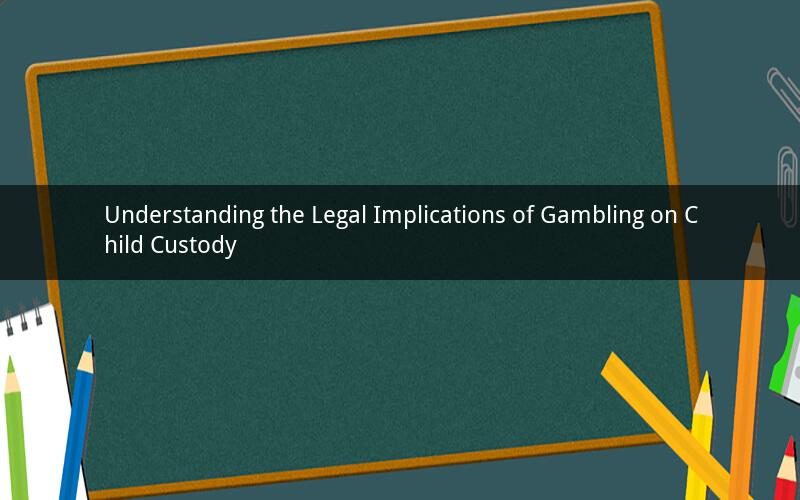
Gambling can be an all-consuming hobby for some, but for those facing child custody disputes, it can also have significant legal implications. If you are concerned about whether you could lose child custody for gambling, this article will explore the potential consequences and offer guidance on how to navigate this challenging situation.
1. Can I lose child custody for gambling?
Yes, you can potentially lose child custody for gambling if it is deemed to be detrimental to the child's well-being. Courts often consider a parent's behavior when determining the best interests of the child. If a parent's gambling habit is causing financial strain, leading to neglect or abuse, or otherwise impacting the child's stability, the court may decide to award custody to the other parent.
2. How does gambling affect child custody?
Gambling can have several negative impacts on child custody, including:
- Financial strain: If a parent is spending a significant amount of money on gambling, it could lead to financial difficulties that affect the child's needs, such as education, healthcare, and basic living expenses.
- Emotional stress: A parent's gambling habit can cause emotional stress and anxiety for both the parent and the child, leading to a tense household environment.
- Neglect or abuse: If a parent is preoccupied with gambling, they may neglect the child's needs, leading to potential neglect or abuse.
- Unstable lifestyle: A parent's gambling addiction can result in an unstable lifestyle, making it difficult for the child to have a consistent routine and support system.
3. What factors will the court consider when deciding child custody?
When deciding child custody, the court will consider the following factors:
- The child's physical and emotional well-being
- The child's relationship with each parent
- The ability of each parent to provide a stable and nurturing environment
- The child's needs, including education, healthcare, and emotional support
- Any history of domestic violence or substance abuse
4. Can I prevent losing child custody for gambling?
Yes, there are steps you can take to prevent losing child custody for gambling:
- Seek help: If you are struggling with a gambling addiction, seek help from a professional. Treatment options may include therapy, support groups, or rehabilitation programs.
- Communicate with your ex: If you are aware that your gambling habit is a concern for your ex, communicate openly and honestly about your situation. This can help build trust and show that you are taking steps to address the issue.
- Be transparent: Be transparent about your financial situation and any treatment or support you are receiving for your gambling addiction.
- Follow court orders: If the court has issued any orders related to child custody or visitation, make sure you follow them strictly.
5. What should I do if I'm facing child custody issues due to gambling?
If you are facing child custody issues due to gambling, consider the following steps:
- Seek legal advice: Consult with an attorney specializing in family law to understand your rights and options.
- Participate in mediation: If possible, participate in mediation to resolve custody issues amicably.
- Be proactive: Take steps to address your gambling addiction and show the court that you are committed to providing a stable environment for your child.
- Be prepared for the possibility of supervised visitation: If the court is concerned about your ability to care for your child, you may be required to have supervised visitation until the situation improves.
In conclusion, gambling can have serious legal implications for child custody. If you are concerned about your gambling habit and its impact on your child, take proactive steps to address the issue and seek legal advice to navigate the custody process. Remember that your child's well-being is the most important factor in any custody decision.